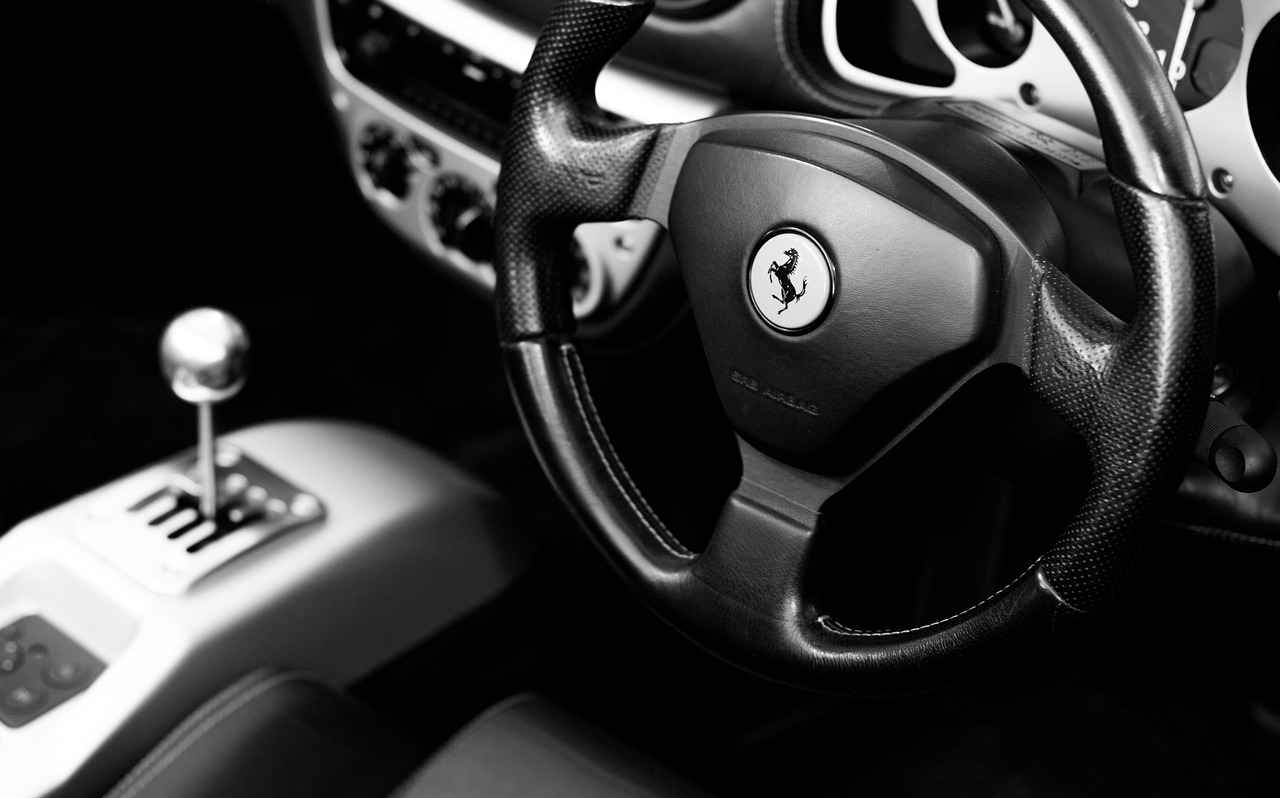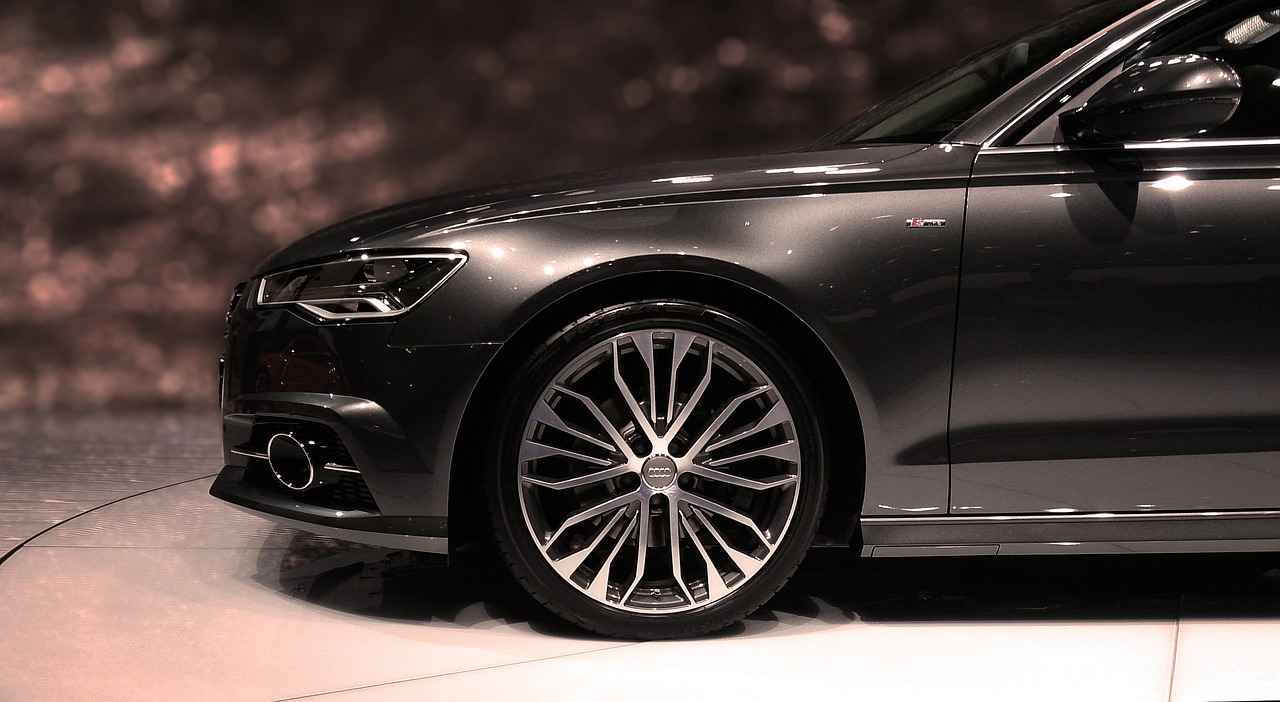The Certificate of Entitlement (COE) is a crucial aspect of vehicle ownership in Singapore, particularly for the popular Honda Accord V. This article delves into the significance of Class COE, its implications for owners, and related topics that potential buyers should consider.
A Class COE is a legal entitlement that allows individuals to own and register a vehicle in Singapore. This system was introduced to control the number of vehicles on the road and is essential for understanding the regulations surrounding vehicle ownership. The COE is categorized into different classes based on engine capacity and vehicle type, with Class B specifically pertaining to larger vehicles, including the Honda Accord V.
Understanding the importance of COE is vital for vehicle owners as it directly affects the costs associated with car ownership. The COE price can fluctuate significantly, impacting the overall affordability of owning a vehicle. For the Honda Accord V, which falls under Class B, the COE plays a substantial role in determining its market value and resale potential.
The COE has a direct correlation with the market price of the Honda Accord V. When COE prices rise, the cost of purchasing this vehicle also increases, which can deter potential buyers. Conversely, a drop in COE prices can make the Accord V more accessible. This dynamic is crucial for anyone considering a purchase, as it influences both initial buying decisions and future resale values.
The COE system is divided into several classes, each catering to different types of vehicles:
- Class A: For cars with engine capacities up to 1,600cc.
- Class B: For vehicles with larger engine capacities, typically above 1,600cc, which includes the Honda Accord V.
- Class C: For commercial vehicles.
- Class D: For motorcycles.
Understanding these classifications is essential for prospective car buyers, particularly those interested in larger vehicles like the Honda Accord V.
Current COE prices can significantly influence the overall cost of acquiring a Honda Accord V. Potential buyers should regularly check the latest COE prices, as they can fluctuate based on market demand and bidding results. Staying informed about these prices is crucial for making a well-informed purchase decision.
Calculating the total cost of ownership for a Honda Accord V involves more than just the purchase price. Buyers must consider:
- The COE cost
- Insurance premiums
- Maintenance expenses
- Depreciation rates
This comprehensive view is essential for anyone looking to invest in a vehicle, as it provides a clearer picture of the financial commitment involved.
Exploring alternatives to purchasing a Honda Accord V can be beneficial for buyers. Options include leasing a vehicle, which can offer lower monthly payments, or considering different vehicle models that may better fit their budget and needs.
Understanding the COE bidding process is crucial for prospective buyers. The bidding system determines the cost of the COE and its availability. Buyers should familiarize themselves with the bidding timeline and strategies to secure the best possible price for their Honda Accord V.
As the automotive landscape evolves, future trends in COE and vehicle ownership will significantly impact how consumers approach purchasing vehicles like the Honda Accord V. Factors such as technological advancements, environmental regulations, and changing consumer preferences will shape this landscape.

What is a Class COE?
A Class COE, or Certificate of Entitlement, is a critical component of vehicle ownership in Singapore. This legal entitlement is essential for anyone looking to register a vehicle, such as the Honda Accord V. Understanding what a Class COE entails is crucial for prospective car owners, as it directly influences the costs and regulations associated with vehicle ownership.
A Class COE is essentially a license that allows individuals to own and operate a vehicle on Singapore’s roads. This certificate is not merely a formality; it represents a significant financial commitment. Vehicle owners must secure a COE through a bidding process, which can fluctuate based on market demand and supply dynamics. The COE system was introduced to regulate the number of vehicles on the road and to manage traffic congestion.
The importance of a Class COE cannot be overstated. For vehicle owners, it serves as a gateway to legal vehicle registration. Without a valid COE, one cannot drive a vehicle legally in Singapore. The costs associated with obtaining a COE can vary significantly, impacting the overall affordability of owning a vehicle. Moreover, understanding the COE’s role aids in navigating the complexities of vehicle ownership, including insurance, maintenance, and resale value considerations.
The COE directly influences the market price of the Honda Accord V. As demand for COEs rises or falls, so too does the price of vehicles that require them. For potential buyers, this means that fluctuations in COE prices can significantly affect their purchasing decisions. A higher COE price can lead to increased overall costs, making it essential for buyers to stay informed about current market trends.
COEs are categorized into several classes, each tailored to different vehicle types. Understanding these classifications is vital for prospective car buyers, as they dictate the type of vehicles that can be registered under each category.
- Class A COE: This class is designated for vehicles with engine capacities up to 1,600cc, making it suitable for many compact and mid-sized cars.
- Class B COE: Meant for vehicles with larger engine capacities, typically above 1,600cc, this class includes the Honda Accord V, impacting its registration costs.
- Class C COE: This class caters to commercial vehicles, allowing businesses to register their fleet.
- Class D COE: Designed for motorcycles, this class is less relevant to discussions surrounding the Honda Accord V.
Staying updated on current COE prices is essential for anyone considering the purchase of a Honda Accord V. These prices can fluctuate based on market conditions, making it crucial for buyers to monitor trends closely. The overall cost of acquiring a Honda Accord V includes both the vehicle price and the COE cost, which can significantly impact the buyer’s budget.
Calculating the total cost of ownership involves more than just the purchase price of the vehicle. Buyers must consider the COE, insurance, maintenance, fuel, and depreciation. Each of these factors plays a role in determining the long-term affordability of owning a Honda Accord V.
For those considering alternatives to purchasing a Honda Accord V, options such as leasing or exploring different vehicle models can provide flexibility. Leasing may offer a lower upfront cost and the ability to drive a new vehicle every few years, while other models might better suit specific needs or budgets.
Understanding the COE bidding process is crucial for prospective Honda Accord V buyers. This process determines the cost of the COE and its availability. Buyers need to be strategic in their approach, as bidding can be competitive and prices can vary significantly from one bidding round to another.
As Singapore continues to evolve in terms of urban planning and environmental considerations, future trends in COE and vehicle ownership will likely shape the automotive landscape. Buyers should be aware of potential changes in regulations and market dynamics that may impact their decisions regarding vehicles like the Honda Accord V.

Why is COE Important for Vehicle Owners?
Understanding the significance of the Certificate of Entitlement (COE) is essential for vehicle owners in Singapore, particularly for those considering the purchase of a vehicle like the Honda Accord V. The COE is not just a bureaucratic necessity; it plays a pivotal role in the overall vehicle ownership experience.
The COE serves as a legal entitlement that permits individuals to own and operate a vehicle in Singapore. This legal framework is crucial for vehicle registration and ownership regulations. Without a valid COE, vehicle ownership is simply not possible. Here are several reasons why the COE is vital for vehicle owners:
- Navigating Legal Requirements: The COE provides clarity on the legal obligations associated with vehicle ownership. Vehicle owners must understand the COE’s role in compliance with local regulations, which helps avoid potential legal issues.
- Cost Considerations: The COE is a significant component of the overall cost of owning a vehicle. Prices for COEs can fluctuate based on demand and supply, impacting the total expenditure for prospective car buyers. Understanding these costs is essential for budgeting purposes.
- Resale Value: The COE can affect the resale value of a vehicle. Cars with a longer remaining COE period often command higher prices in the second-hand market. Therefore, being aware of COE implications can influence buying and selling decisions.
- Market Trends: Keeping an eye on COE market trends can provide insights into the best times to buy or sell a vehicle. For instance, if COE prices are projected to rise, potential buyers might expedite their purchase decisions.
Moreover, the COE system is divided into several classes, each catering to different vehicle types. Understanding these classifications is essential for prospective car buyers, particularly for those interested in vehicles like the Honda Accord V.
The COE directly impacts the market price of the Honda Accord V. As a vehicle that falls under Class B COE, which is designated for cars with engine capacities above 1,600cc, the pricing dynamics are unique. The cost of the COE can significantly influence both purchase decisions and resale values in the competitive automotive market.
Calculating the total cost of ownership involves considering several factors, including the COE, insurance, maintenance, and depreciation. This comprehensive view allows potential buyers to assess the financial implications of owning a Honda Accord V. It is crucial to factor in all these elements to avoid unexpected expenses down the line.
For those who find the COE costs prohibitive, exploring alternatives to purchasing a Honda Accord V can be beneficial. Options such as leasing or considering different vehicle models can provide flexibility and potentially lower costs.
Understanding the COE bidding process is crucial for prospective Honda Accord V buyers. This process determines the entitlement costs and availability, making it essential for buyers to be well-informed. Engaging in research and possibly consulting with experts can help navigate this complex landscape effectively.
In conclusion, the importance of COE cannot be overstated for vehicle owners in Singapore. It influences legal compliance, financial planning, and market dynamics, making it a critical aspect of car ownership. By being informed about COE and its implications, vehicle owners can make better decisions, ensuring a smoother and more financially sound ownership experience.

How Does COE Affect Honda Accord V Prices?
The Certificate of Entitlement (COE) is a pivotal factor in the automotive market in Singapore, particularly for popular models like the Honda Accord V. Understanding how COE influences pricing can help prospective buyers make informed decisions.
The COE has a direct and significant impact on the market price of the Honda Accord V. This legal entitlement, which must be obtained before a vehicle can be registered, adds a layer of complexity to the overall cost of ownership. As such, it plays a crucial role in shaping both purchase decisions and resale values in the competitive automotive market.
When the COE prices rise, the overall cost of purchasing a Honda Accord V also increases. This is because the COE is a substantial component of the total vehicle cost. For instance, if the COE for Class B vehicles (which includes the Honda Accord V) is high, potential buyers may hesitate to make a purchase, leading to a decrease in demand. Conversely, when COE prices drop, it can stimulate demand as buyers perceive the overall cost of ownership as more manageable.
Moreover, the fluctuations in COE prices can also affect the resale value of the Honda Accord V. If a buyer purchases the vehicle during a period of high COE prices, the resale value may not appreciate as much when they decide to sell, especially if COE prices have decreased by that time. This creates a ripple effect where both new and used car markets are influenced by the prevailing COE rates.
| COE Price Trend | Impact on Purchase Decision | Impact on Resale Value |
|---|---|---|
| High COE Prices | Decreased demand for new purchases | Potentially lower resale value |
| Low COE Prices | Increased demand for new purchases | Potentially higher resale value |
Another factor to consider is the market sentiment surrounding COE prices. If buyers believe that COE prices will continue to rise, they may rush to purchase a Honda Accord V, further driving up demand and prices. On the other hand, if there is a perception that COE prices will fall, buyers might delay their purchases, leading to a temporary dip in demand.
Additionally, the government policies regarding COE can also influence pricing. Changes in regulations or COE allocation can lead to sudden price shifts, impacting both new and used vehicle markets. For example, if the government decides to increase the number of COEs available, this could lower prices, making it easier for buyers to purchase a Honda Accord V.
In summary, the COE is a crucial determinant of the market price for the Honda Accord V. It affects not only the initial purchase price but also the long-term value of the vehicle. Prospective buyers should keep a close eye on COE trends and government policies to make informed decisions regarding their vehicle investments.

What are the Different Classes of COE?
The Certificate of Entitlement (COE) system in Singapore is a unique mechanism that regulates vehicle ownership. It is essential for prospective car buyers, particularly those considering models like the Honda Accord V, to understand the various classifications of COE. This knowledge not only aids in making informed purchasing decisions but also helps in budgeting for vehicle ownership.
COE is categorized into several classes, each designed to accommodate different types of vehicles. These classifications are vital as they determine the eligibility and costs associated with vehicle registration. The main classes include:
- Class A COE: This class is intended for cars with engine capacities up to 1,600cc. It is particularly relevant for compact and mid-sized vehicles, making it a popular choice for many first-time car buyers.
- Class B COE: Designed for vehicles with engine capacities exceeding 1,600cc, Class B COE is particularly significant for models like the Honda Accord V. The implications of this classification can affect registration costs and the overall affordability of owning such vehicles.
- Class C COE: This class caters to commercial vehicles, including vans and trucks. While not directly relevant to personal car buyers, understanding this category is important for those considering commercial vehicle ownership.
- Class D COE: Specifically for motorcycles, Class D COE is less pertinent to the discussions surrounding the Honda Accord V, yet it is crucial for motorcycle enthusiasts and buyers.
- Class E COE: This is a more flexible category that encompasses all types of vehicles. It is often utilized for unique or specialty vehicles that do not fit into the other classifications.
Understanding these classifications is crucial for prospective car buyers, as each class has its own bidding prices and implications for vehicle ownership costs. For instance, the price of a Class B COE can significantly influence the purchase price of a Honda Accord V, making it essential for buyers to stay updated on current COE trends.
Comprehending the different classes of COE not only informs buyers about potential costs but also helps them assess the long-term financial commitments associated with vehicle ownership. For example, a buyer interested in a Honda Accord V must consider not only the vehicle’s price but also the COE class, which can add thousands to the overall purchase cost.
Additionally, understanding COE classes can guide buyers in their negotiations and bidding strategies during the COE bidding process. A well-informed buyer is better equipped to make strategic decisions, potentially saving money and ensuring they secure the best possible deal.
The implications of COE classes extend beyond initial purchase costs. They affect insurance rates, road tax, and even resale values. For instance, vehicles under Class A generally have lower running costs compared to those in Class B, which can be a deciding factor for budget-conscious buyers.
Moreover, fluctuations in COE prices can create opportunities or challenges for buyers. For instance, a sudden increase in Class B COE prices might prompt buyers to reconsider their options or delay their purchase, while a decrease could encourage immediate buying activity.
In summary, understanding the different classes of COE is essential for anyone considering vehicle ownership in Singapore. It empowers buyers with the knowledge needed to navigate the complexities of the automotive market, ensuring they make informed decisions that align with their financial goals and lifestyle needs.
Class A COE
The is a vital component in Singapore’s vehicle ownership landscape, particularly for those interested in compact and mid-sized vehicles. This classification is specifically designated for cars with engine capacities up to 1,600cc, making it an attractive option for many drivers looking for affordability and efficiency.
Vehicles that fall under the Class A COE category typically include a wide range of compact cars and some mid-sized sedans. Examples include popular models from manufacturers like Honda, Toyota, and Nissan. The Honda Accord V is an example of a vehicle that, while it generally exceeds the Class A specifications, often has variants that align closely with this category.
- Cost-Effective: Vehicles under this category generally have lower purchase prices due to the lower COE premiums.
- Fuel Efficiency: Cars with smaller engine capacities tend to offer better fuel efficiency, making them ideal for city driving.
- Lower Road Tax: Owners of Class A vehicles benefit from reduced road tax rates, which can significantly decrease overall ownership costs.
The bidding process for Class A COE is conducted during regular COE bidding exercises. Participants can place their bids online, and the highest successful bids will determine the COE prices for that period. This process can be competitive, especially as demand for compact cars remains high.
The price of Class A COE directly impacts the overall market price of vehicles within this category. As COE prices fluctuate, they can either enhance or diminish the resale value of vehicles. For instance, if COE prices rise significantly, the cost of acquiring a compact vehicle can increase, thereby affecting buyer decisions.
With growing awareness of environmental issues, Class A vehicles are often seen as a more sustainable choice. Their smaller engines typically produce lower emissions, aligning with Singapore’s green initiatives aimed at reducing the carbon footprint of the automotive sector.
As technology advances, the automotive industry is witnessing a shift towards electric vehicles (EVs) and hybrids. Future iterations of Class A COE may potentially include provisions for these environmentally friendly vehicles, further influencing consumer choices.
In summary, the Class A COE plays a significant role in shaping vehicle ownership in Singapore. Understanding its implications, benefits, and the bidding process is essential for prospective buyers. As the automotive landscape evolves, staying informed about Class A COE will help consumers make better choices that align with their needs and values.
Class B COE
The Class B Certificate of Entitlement (COE) is a crucial aspect of vehicle ownership in Singapore, particularly for those interested in larger vehicles, such as the Honda Accord V. This article delves into the significance of Class B COE, how it affects vehicle owners, and what potential buyers should know.
Class B COE pertains to vehicles with engine capacities exceeding 1,600cc. This class includes a range of larger sedans, SUVs, and other vehicles designed for performance and comfort. The Honda Accord V, known for its spacious interior and advanced features, falls under this category, making understanding Class B COE essential for prospective owners.
For vehicle owners, the Class B COE is significant because it directly influences the cost of ownership. In Singapore, the COE system regulates vehicle registration and ownership, meaning that without a valid COE, one cannot legally own or operate a vehicle. Consequently, understanding the implications of Class B COE helps owners plan their finances better and navigate the complexities of car ownership.
The price of a Class B COE can fluctuate based on market demand and supply dynamics, which in turn affects the market price of the Honda Accord V. Higher COE prices generally lead to increased overall costs for buyers, influencing both purchase decisions and resale values. Therefore, staying updated on COE prices is vital for anyone considering the Honda Accord V.
Understanding the various classes of COE is essential for prospective car buyers. The COE system is divided into several classes:
- Class A COE: For vehicles with engine capacities up to 1,600cc.
- Class B COE: For vehicles with engine capacities above 1,600cc, including the Honda Accord V.
- Class C COE: For commercial vehicles.
- Class D COE: For motorcycles.
The implications of Class B COE on the Honda Accord V are significant. The higher registration costs associated with this class can make it less affordable for some buyers. Additionally, the fluctuating nature of COE prices adds another layer of complexity to the purchasing process.
Recent trends indicate that Class B COE prices can be volatile, influenced by various factors such as economic conditions and changes in consumer demand. This volatility can impact potential Honda Accord V owners, making it essential to monitor COE trends closely to make informed decisions.
Current COE prices play a pivotal role in determining the overall cost of acquiring a Honda Accord V. As of the latest data, prices for Class B COE can vary significantly, so prospective buyers should keep abreast of the latest figures to understand how they impact their budget.
Calculating the total cost of ownership for a Honda Accord V involves more than just the purchase price. Buyers should consider:
- Class B COE cost- Insurance premiums- Maintenance expenses- Depreciation over time
By factoring in these elements, potential owners can gain a comprehensive view of their investment.
For those reconsidering their options, alternatives to purchasing a Honda Accord V include leasing or exploring different vehicle models that may better fit their budget and needs.
Understanding the COE bidding process is crucial for prospective Honda Accord V buyers. This process determines the costs and availability of the COE, impacting the overall affordability of the vehicle.
The future of COE and vehicle ownership in Singapore is evolving, influenced by technological advancements and changing consumer preferences. Staying informed about these trends will help potential buyers make better decisions regarding vehicles like the Honda Accord V.
Impact on Honda Accord V
The Class B Certificate of Entitlement (COE) plays a pivotal role in determining the financial landscape for potential buyers of the Honda Accord V. This article delves into the implications of Class B COE on registration costs, affordability, and overall ownership experience, shedding light on why understanding this aspect is crucial for prospective Honda Accord V owners.
Class B COE applies specifically to vehicles with engine capacities exceeding 1,600cc, which includes the Honda Accord V. This classification significantly affects the vehicle’s registration fees and, consequently, the overall cost of ownership. Buyers must be aware that the COE prices fluctuate based on market demand, which can impact the total expenses associated with acquiring this vehicle.
The registration costs for the Honda Accord V are directly tied to the prevailing rates of Class B COE. When the COE prices soar, potential buyers face increased upfront costs, making the vehicle less affordable. Conversely, when COE prices decrease, buyers can benefit from lower registration fees, enhancing the vehicle’s attractiveness in the market.
Understanding the financial implications of Class B COE is vital for buyers. The cost of the COE is an essential component of the vehicle’s total price, which also includes taxes, insurance, and maintenance. This comprehensive view allows potential owners to make informed decisions about their purchase.
The resale value of the Honda Accord V is also influenced by the Class B COE. A higher COE price can lead to a reduction in demand for used vehicles, thereby affecting resale prices. Buyers looking to invest in a Honda Accord V should consider how current COE trends will impact their long-term investment.
Prospective buyers must navigate the COE bidding process effectively. Understanding how to bid strategically can lead to better outcomes in securing a Class B COE at a favorable price. This knowledge is crucial for anyone looking to purchase a Honda Accord V, as it directly influences the total cost of ownership.
Staying informed about the latest COE prices is essential for potential Honda Accord V buyers. Regularly checking updates from reputable automotive news sources or government announcements can help buyers make timely decisions. This vigilance can lead to significant savings in registration costs.
While the Honda Accord V is a popular choice, buyers should also explore alternatives. Other vehicles within the same class or even leasing options may provide more affordable solutions without compromising on quality and features. Evaluating different options can lead to better financial decisions.
As the automotive landscape evolves, so too will the trends surrounding COE and vehicle ownership. Potential buyers of the Honda Accord V should keep an eye on upcoming regulations and market shifts that could influence COE prices and vehicle affordability. This foresight can help buyers adapt to changes and make informed purchasing decisions.
Market Trends for Class B COE
The automotive market in Singapore is constantly evolving, and one of the key factors influencing vehicle ownership is the Certificate of Entitlement (COE). In particular, the recent fluctuations in Class B COE prices have caught the attention of potential buyers of the Honda Accord V. Understanding these trends is essential for making informed purchasing decisions.
Class B COE, which pertains to vehicles with engine capacities exceeding 1,600cc, has experienced notable fluctuations in recent months. These changes can be attributed to various factors, including economic conditions, demand and supply dynamics, and government policies. For instance, a sudden increase in demand for larger vehicles can lead to a spike in COE prices, making it more challenging for buyers to afford their desired models.
The impact of these fluctuations on potential Honda Accord V owners is significant. With rising COE prices, the overall cost of acquiring a Honda Accord V increases, which can deter some buyers. The Honda Accord V is positioned as a mid-range vehicle, and as such, its affordability is closely tied to COE prices. A higher COE can lead to increased monthly payments or even push some buyers to consider alternative models.
Staying informed about COE trends is crucial for prospective buyers. By understanding the current market conditions, potential buyers can time their purchases more effectively. For example, if COE prices are trending downwards, it may be advantageous to wait before making a purchase. Additionally, being aware of the bidding process and how it influences prices can empower buyers to make smarter decisions.
- Research Historical Trends: Analyzing past COE trends can provide insights into potential future movements.
- Engage with Dealers: Building a relationship with car dealers can offer access to exclusive deals and insights on upcoming COE bids.
- Consider Alternative Financing: Exploring financing options can help mitigate the impact of high COE prices on monthly payments.
For those deterred by high COE prices, exploring alternatives can be beneficial. Options such as leasing a vehicle or considering smaller engine capacity models may provide cost-effective solutions. Additionally, looking into second-hand vehicles can also offer significant savings while still meeting the needs of the buyer.
Understanding the COE bidding process is essential for anyone looking to purchase a vehicle in Singapore. Buyers should familiarize themselves with the bidding schedule, prepare their finances in advance, and consider setting a budget limit to avoid overspending during the bidding. This proactive approach can help ensure that buyers secure their desired COE without breaking the bank.
Looking ahead, several factors could influence Class B COE prices, including changes in government regulations, economic recovery post-pandemic, and shifts in consumer preferences towards electric vehicles. Keeping an eye on these trends can help potential buyers anticipate changes in the market and make informed decisions.
In summary, the fluctuations in Class B COE prices significantly impact the purchasing decisions of potential Honda Accord V owners. By staying informed and adopting strategic approaches, buyers can navigate the complexities of the market and make sound decisions that align with their financial goals.
Class C and D COE
The Classes C and D COE system plays a pivotal role in the vehicle registration framework in Singapore, particularly for commercial vehicles and motorcycles. While these classes may not directly impact discussions surrounding the Honda Accord V, understanding their significance is essential for a comprehensive grasp of the entire Certificate of Entitlement (COE) landscape.
Class C COE is specifically designed for commercial vehicles, which include trucks, buses, and vans. This class allows businesses to register vehicles that are essential for their operations. The registration process under Class C is crucial for companies that rely on transportation for logistics and service delivery.
On the other hand, Class D COE caters to motorcycles. This class is significant for individuals and businesses that utilize two-wheelers for personal or commercial purposes. Motorcycles often provide a cost-effective and efficient mode of transport, especially in congested urban areas.
While Classes C and D may seem less relevant when discussing the Honda Accord V, they are crucial for understanding the broader context of vehicle ownership in Singapore. By knowing how these classes operate, prospective buyers can better appreciate the regulatory environment that governs all vehicle registrations.
The presence of Classes C and D can influence the overall automotive market, including the Honda Accord V. For instance, fluctuations in the demand for commercial vehicles and motorcycles can indirectly affect the prices and availability of passenger vehicles. Understanding these dynamics can be beneficial for potential buyers.
| COE Class | Vehicle Type | Key Features |
|---|---|---|
| Class C | Commercial Vehicles | Designed for businesses, operational efficiency, higher registration fees |
| Class D | Motorcycles | Cost-effective transport, lower registration fees, increasing popularity |
Understanding Classes C and D can also assist vehicle owners in making informed decisions regarding their purchases. For instance, if a buyer is considering a Honda Accord V, they might also evaluate how the presence of commercial vehicles and motorcycles in the market affects overall vehicular demand and pricing.
As Singapore continues to evolve its transportation policies, the relevance of Classes C and D may shift. Factors such as urban planning, sustainability, and technological advancements will likely play a role in shaping the future of vehicle ownership and registration in the country.
In summary, while Classes C and D may not directly relate to the Honda Accord V, their implications within the broader vehicle registration framework are significant. Understanding these classes aids in grasping the complexities of vehicle ownership and the factors influencing the automotive market in Singapore.

What are the Current COE Prices for Honda Accord V?
The Certificate of Entitlement (COE) is a critical factor in the automotive landscape of Singapore, particularly for buyers interested in the Honda Accord V. Understanding the current COE prices is essential for anyone considering purchasing this vehicle, as it directly affects the overall cost of ownership.
Current COE prices can significantly influence the overall cost of acquiring a Honda Accord V, making it vital for buyers to stay informed. The price of COE fluctuates based on market demand and supply, impacting the total expenditure for buyers. As of the latest data, the prices for Class B COE, which is applicable to the Honda Accord V, have seen notable changes.
- Market Demand: Increased interest in vehicle ownership can drive COE prices higher.
- Supply Constraints: Limited COE availability often leads to competitive bidding, raising prices.
- Government Policies: Changes in regulations can affect the number of COEs released.
The COE is a significant component of the Honda Accord V’s purchase price. For instance, if the COE price rises, the overall cost of the vehicle increases, which may deter potential buyers. Conversely, lower COE prices can make the Honda Accord V more attractive in terms of affordability. Buyers must also consider that COE prices can affect resale values, as vehicles with lower initial costs may be more desirable in the second-hand market.
When assessing COE prices, potential buyers should take into account:
- Timing: COE prices can vary significantly from one bidding cycle to another. Monitoring trends can help buyers make informed decisions.
- Financial Implications: Understanding how COE prices fit into the total cost of ownership is crucial. This includes financing options and budget considerations.
- Long-Term Value: Evaluating the Honda Accord V’s performance in the market can provide insights into future resale potential.
Staying informed about the latest COE prices is essential for prospective buyers. Here are some effective ways to do so:
- Online Resources: Websites dedicated to automotive news often provide real-time updates on COE prices.
- Automobile Forums: Engaging with communities can offer insights and shared experiences related to COE bidding.
- Official Announcements: Following announcements from the Land Transport Authority (LTA) can provide accurate and timely information.
In summary, understanding the current COE prices is vital for anyone looking to purchase a Honda Accord V. The fluctuating nature of COE prices can significantly impact the overall cost of ownership, making it essential for buyers to remain informed and proactive in their research. By considering various factors such as market demand, timing, and financial implications, prospective owners can make more informed decisions that align with their budget and ownership goals.

How to Calculate the Total Cost of Ownership?
When considering the purchase of a vehicle, especially a model like the Honda Accord V, it is essential to understand the total cost of ownership (TCO). This comprehensive calculation goes beyond the initial purchase price and includes various ongoing expenses that can significantly affect your budget.
Calculating TCO involves several key components:
- Certificate of Entitlement (COE): This is a crucial factor in Singapore’s vehicle ownership, as it represents the legal right to own a car. The price of the COE can fluctuate, impacting the overall cost of your Honda Accord V.
- Insurance: Vehicle insurance is a necessary expense that varies based on coverage type and the driver’s profile. Understanding the insurance costs associated with a Honda Accord V is vital for accurate budgeting.
- Maintenance: Regular maintenance is essential for keeping your vehicle in optimal condition. This includes routine services, repairs, and parts replacement, which can accumulate over time.
- Depreciation: As with all vehicles, the Honda Accord V will depreciate over time. Understanding the depreciation rate helps in estimating the vehicle’s resale value and overall investment return.
To accurately calculate the TCO, you should follow these steps:
1. Determine the current COE price for the Honda Accord V.2. Research insurance quotes from various providers to find the best coverage.3. Estimate annual maintenance costs based on manufacturer recommendations and average service costs.4. Analyze the depreciation rate for the Honda Accord V, which typically averages around 10-15% per year.
Understanding the total cost of ownership is crucial for potential buyers, as it provides a comprehensive view of what to expect financially. By factoring in all these elements, buyers can make informed decisions that align with their financial capabilities and lifestyle needs.
For instance, if the COE for a Honda Accord V is S$50,000, with an annual insurance premium of S$1,500, and estimated maintenance costs of S$800 per year, along with a depreciation rate of 12%, the TCO can be calculated as follows:
- COE: S$50,000
- Insurance (5 years): S$7,500
- Maintenance (5 years): S$4,000
- Depreciation (after 5 years): S$30,000 (assuming a 12% depreciation)
This brings the total cost of ownership over five years to approximately S$91,500, illustrating the importance of considering all expenses beyond the initial purchase price.
By understanding the total cost of ownership, buyers can compare different vehicles more effectively, weigh the long-term financial implications, and choose a model that best fits their budget and lifestyle. It also helps in planning for future expenses, ensuring that vehicle ownership remains a manageable and positive experience.

What are the Alternatives to Buying a Honda Accord V?
When considering the purchase of a Honda Accord V, potential buyers often explore various alternatives that may better suit their needs and financial situations. This exploration can lead to several options, such as leasing, financing, or even considering different vehicle models that offer similar features and benefits.
Leasing a vehicle, such as the Honda Accord V, can be an attractive option for those who prefer lower monthly payments and the flexibility to drive a new car every few years. Leasing typically requires a lower down payment compared to purchasing, making it more accessible for many buyers. However, it’s essential to consider mileage limits and potential fees for excessive wear and tear.
If leasing doesn’t appeal to you, financing the purchase of a Honda Accord V is another viable option. Many dealerships offer competitive financing rates, allowing buyers to spread the cost of the vehicle over several years. This method can lead to eventual ownership of the car, providing long-term value. Additionally, checking with banks and credit unions can help secure better financing terms.
Buyers should also consider alternatives to the Honda Accord V by exploring different vehicle models that may offer similar features or benefits. For instance, sedans like the Toyota Camry or the Nissan Altima provide comparable performance and comfort. Additionally, compact SUVs such as the Honda CR-V or the Mazda CX-5 can offer more space and versatility, appealing to families or those needing extra cargo capacity.
Another alternative worth exploring is the certified pre-owned (CPO) market. CPO vehicles often come with extended warranties and have undergone rigorous inspections, making them a reliable option for buyers seeking value. A CPO Honda Accord V can provide many of the benefits of a new car at a significantly reduced price.
When evaluating alternatives, it’s crucial to consider the total cost of ownership, which includes not only the purchase price but also insurance, maintenance, and fuel costs. Some vehicles may have higher initial prices but lower long-term costs due to better fuel efficiency or lower insurance rates. Conducting a thorough analysis can help buyers make informed decisions.
If you already own a vehicle, consider trading it in to offset the cost of your new purchase or lease. Many dealerships offer competitive trade-in values, which can significantly reduce your financial burden when acquiring a new Honda Accord V or any alternative vehicle.
Lastly, consulting with automotive experts or using online resources can provide valuable insights into the best alternatives available. Websites that compare vehicles based on features, pricing, and ownership costs can help buyers make well-informed decisions. Engaging with automotive forums or local dealerships can also provide firsthand experiences from other buyers.
In summary, exploring alternatives to purchasing a Honda Accord V opens up a world of possibilities for buyers. Whether through leasing, financing, exploring different models, or considering certified pre-owned options, there are numerous avenues to consider. By weighing these alternatives carefully, buyers can find the best fit for their lifestyle and budget.

How to Navigate the COE Bidding Process?
Understanding the COE bidding process is essential for anyone looking to purchase a Honda Accord V in Singapore. The Certificate of Entitlement (COE) is a crucial part of the vehicle ownership landscape, and navigating this process effectively can significantly influence your financial commitment and overall experience. Below, we delve into the intricacies of the COE bidding process, offering insights that can empower prospective buyers.
The COE bidding process is a competitive auction system that determines the price of COEs in Singapore. Each month, the Land Transport Authority (LTA) holds a bidding exercise where buyers can submit their bids for COEs. The highest bidders receive the entitlements to own a vehicle, making it a critical step for anyone interested in buying a Honda Accord V or any other vehicle.
For prospective Honda Accord V buyers, understanding this process is vital as it directly impacts entitlement costs and the availability of COEs. A well-informed buyer can make strategic decisions on when to bid, potentially saving thousands of dollars.
- Research Current COE Prices: Before participating, it is essential to check the latest COE prices to gauge how much you might need to bid.
- Set a Budget: Determine how much you are willing to spend on the COE, factoring in your overall budget for purchasing the Honda Accord V.
- Choose a Bidding Method: You can bid online through the LTA’s website, via authorized dealers, or through banks that offer bidding services.
- Submit Your Bid: Bids can be submitted during the designated bidding period, which typically lasts for a week.
Several factors can affect COE prices, including:
- Market Demand: Higher demand for vehicles can drive up COE prices.
- Economic Conditions: Changes in the economy can influence consumer purchasing power and bidding behavior.
- Government Policies: Adjustments in policies regarding vehicle ownership can impact COE availability and pricing.
To enhance your chances of securing a COE at a favorable price, consider the following tips:
- Bid Strategically: Monitor trends and consider bidding during periods when demand is lower.
- Stay Informed: Regularly check updates from the LTA regarding COE statistics and upcoming bidding exercises.
- Consult Experts: Engaging with automotive consultants or dealers can provide valuable insights into the bidding process.
Being aware of common pitfalls can save you from costly mistakes:
- Overbidding: Avoid the temptation to bid beyond your budget, as this can lead to financial strain.
- Ignoring Market Trends: Failing to research current trends might result in an uninformed bid.
- Neglecting Additional Costs: Remember to factor in other costs associated with vehicle ownership, such as insurance and maintenance.
In summary, navigating the COE bidding process is a critical step for prospective Honda Accord V buyers. By understanding the mechanics of the bidding system, staying informed about market trends, and employing strategic bidding techniques, you can enhance your chances of securing a COE at a favorable price. This knowledge not only aids in making informed purchasing decisions but also contributes to a more seamless vehicle ownership experience.

Future Trends in COE and Vehicle Ownership
The automotive landscape in Singapore is evolving rapidly, driven by shifts in consumer preferences and regulatory changes. As we look ahead, future trends in COE (Certificate of Entitlement) and vehicle ownership are set to significantly influence how consumers approach purchasing vehicles, including popular models like the Honda Accord V.
One of the most notable trends is the increasing adoption of environmentally friendly vehicles. With Singapore’s commitment to reducing carbon emissions, there is a growing emphasis on electric vehicles (EVs) and hybrids. This shift will likely lead to changes in COE pricing structures, with incentives for greener vehicles becoming more prevalent.
As the demand for EVs rises, we may witness a decrease in COE prices for traditional combustion engine vehicles like the Honda Accord V. This could create a more favorable market for buyers who prefer conventional vehicles, while simultaneously making EVs more financially attractive due to lower COE costs.
Technological advancements in automotive design and manufacturing are expected to reshape vehicle ownership dynamics. For instance, the emergence of autonomous driving technology could lead to a decrease in the need for personal vehicle ownership, as shared mobility solutions become more viable. This trend may reduce the overall demand for COEs in the long run.
As consumers become more conscious of their spending, there is a noticeable shift towards alternative ownership models. Leasing and subscription services are gaining popularity, allowing consumers to drive vehicles like the Honda Accord V without the long-term commitment of ownership. This shift could further impact COE demand and pricing.
For potential buyers of the Honda Accord V, understanding these trends is crucial. As COE prices fluctuate, consumers will need to strategically assess their purchasing decisions. The potential for lower COE prices in the future could make now an opportune time to invest in a Honda Accord V, especially if buyers anticipate a shift towards more stringent regulations on COE issuance.
Government policies will play a pivotal role in shaping the future of vehicle ownership in Singapore. Initiatives aimed at promoting sustainability, such as tax incentives for EVs and stricter emissions regulations, will influence consumer behavior and COE pricing. Buyers of the Honda Accord V must stay informed about these policies to make educated decisions.
- Market Research: Stay updated on COE trends and pricing.
- Evaluate Ownership Models: Consider leasing vs. buying.
- Environmental Impact: Assess the benefits of hybrid and electric vehicles.
- Regulatory Changes: Keep an eye on government policies affecting COE.
In summary, the future of COE and vehicle ownership in Singapore is poised for transformation. As trends evolve, consumers will need to adapt their purchasing strategies, particularly when considering vehicles like the Honda Accord V. By staying informed and flexible, buyers can navigate this changing landscape effectively.
Frequently Asked Questions
- What is a Class COE?
A Class COE, or Certificate of Entitlement, is a legal document that allows you to own a vehicle in Singapore. It’s like a ticket to the car ownership party, and without it, you can’t register your vehicle!
- Why is COE important for vehicle owners?
Understanding COE is crucial because it affects everything from the cost of owning a car to the legalities involved in registration. Think of it as the foundation of your car ownership journey.
- How does COE affect Honda Accord V prices?
The COE price directly impacts how much you pay for a Honda Accord V. Higher COE prices can mean higher overall costs, influencing both your buying and selling decisions.
- What are the different classes of COE?
COE is divided into several classes, including Class A for smaller cars and Class B for larger ones like the Honda Accord V. Knowing these classes helps you make informed decisions when buying a car.
- How can I calculate the total cost of ownership?
To calculate the total cost of ownership, consider the COE, insurance, maintenance, and depreciation. It’s like putting together a jigsaw puzzle to see the full picture of what owning a car will cost you.



